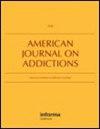Discrimination experiences and problematic alcohol and cannabis use in young adulthood
Abstract
Background and Objectives
Limited research has examined how discrimination in young adulthood relates to substance use. We examined how multiple and specific types (e.g., race-based) of experiences of unfair treatment are related to problematic alcohol and cannabis use.
Methods
We analyzed cross-sectional data from a diverse cohort of young adults (mean age 24.7) predominantly residing in southern California (n = 2303) to examine associations of multiple (count) and specific experiences (race-, sexual orientation-, gender-based) of perceived everyday discrimination with self-reported alcohol and cannabis use outcomes (consequences, use disorders, and solitary use). We also tested interactions between the three specific discrimination experiences and sociodemographic characteristics (e.g., race-based discrimination × race/ethnicity).
Results
In this diverse sample (e.g., 47% Latinx/o and 22% Asian; 22% sexual/gender diverse; 56% female) of young adults, about 46% reported up to four different discrimination experiences and 27% reported race-, 26% gender-, and 5% sexual orientation-based discrimination. Race- and gender-based discrimination and experiencing more types of discrimination were associated with worse cannabis use outcomes. Race-based discrimination was associated with fewer alcohol consequences and lower Alcohol Use Disorders Identification Test (AUDIT) scores. Associations with sexual orientation-based discrimination and the interactions were not significant.
Discussion and Conclusions
Findings build on limited research on associations of discrimination with cannabis use in young adults. More work is needed to understand the mechanisms by which discrimination influences drinking behaviors.
Scientific Significance
This study advances the field by examining the unique contributions of specific and multiple types of discrimination experiences in young adulthood, a critical developmental period in which substance use peaks.

 求助内容:
求助内容: 应助结果提醒方式:
应助结果提醒方式:


